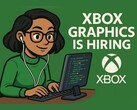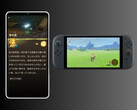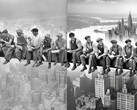Expectations for innovative gameplay and improved graphics have led to longer development cycles. Generative AI could shorten the process, but it has become a controversial subject in the industry. Masahiro Sakurai, the creator of Nintendo games like Super Smash Bros. and Kirby's Dream Land, recently shared his thoughts on the technology.
Ironically, the machine translation of a new Japanese article has some confusion. In the ITmedia interview, Sakurai doesn't commit to using generative AI in his projects. Still, he explains how major studios are struggling with titles that are becoming larger in scope. Meanwhile, companies with fewer resources quickly fall behind their well-funded competition.
AI is tempting since it reduces this workload, but gamers fear developers will use it as a substitute for human creativity. Nintendo President Shuntaro Furukawa previously assured fans that generative AI would not generate assets in first-party games. The company also has concerns about the issue of IP rights that these tools raise. Nintendo was later accused of employing AI to create billboards in Mario Kart World, but it vehemently denied the accusations.
Sakurai may be more receptive to relying on AI to increase workplace productivity. Mundane tasks, like creating schedules, can also streamline game development. Otherwise, the influential game designer believes that the process is now "too time-consuming and unsustainable."
Gamers often complain when titles are in the works for years without signs of progress. After the announcement of Metroid Prime 4: Beyond in 2017, Switch and Switch 2 owners are left with a vague 2025 release date. Games created outside of Japan are also taking longer to surface, with the delayed GTA 6 the obvious example. Development teams must find ways to increase efficiency, but Sakurai doesn't have any immediate answers to the problem.
Kirby Air Riders is the next entry in a series of anticipated Nintendo games from Sakurai. Like Metroid Prime 4, fans only know it has a projected 2025 release.








































